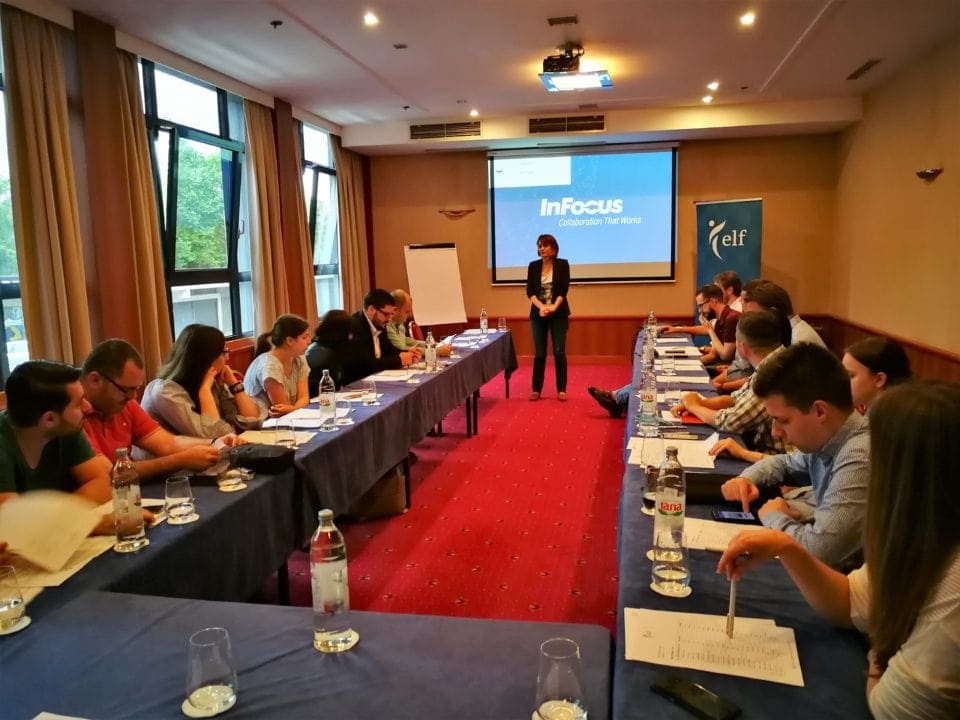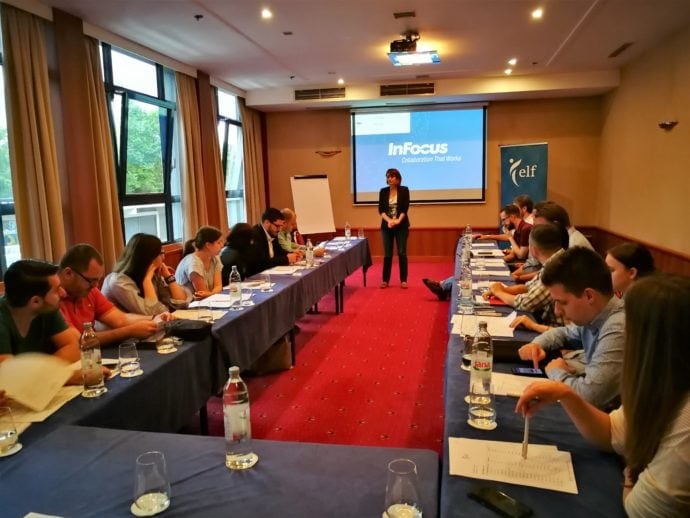Regional Expert Networks programme builds on outputs of the Regional Academy in Southeast Europe that created a regional framework for best practices exchange in party organization, campaigning and communications in 2016. In 2017, Regional Academy focused on developing a pool of local trainers, which will be engaged as moderators of regional seminars and workshops this year.
The second in the series of Regional Expert Networks events brought together data analysis, IT and other experts on the use of data in political campaigns from liberal organizations from Central and Southeast Europe. They were joined by experts from the VVD, D66 and the ALDE Party who shared their experiences in developing a functioning data analysis operation within their organizations and introduced them to the variety of free-to-use tools in this field.
The second event of the Regional Expert Networks was moderated by Saša Vasić, project manager of the Boris Divković Foundation (BiH) who participated and graduated from the ELF Regional Academy for Liberalism ToT programme in 2017. Trainers and experts who implemented the programme were: Max Sundermann, ALDE Party data analyst, Rob Geldhoff and Marlijn Heijnen, VVD data experts and Jelmer Schreuder, D66 data expert.
On Friday, the event began with a round of introductions in which each participant presented how their organization handles data and in what way it informs their campaign planning. Afterwards, the trainers led the participants in an exercise in which they discussed their goals and expectations for the weekend.
The programme of Saturday and Sunday was divided into 3 sessions: Data analysis Theory, Workshop 1 and Workshop 2.
The first session began by a presentation of Max Sundermann who introduced the participants to how the ALDE Party works with data, citing examples of cooperative efforts with the member parties that enabled them to better target their political campaigns. Afterwards, Rob Geldhoff presented the concept of mapping and using mapping to analyse geographic patterns in voter support while connecting this data to publically available demographic, economic and social statistics. This was an introduction to the next session led by Marlijn Heijnen who talked about statistics and how to do a simple analysis using Excell or other programs.
On Saturday afternoon, the participants did a practical exercise on the QGIS program where they mapped voter support based on data for Zagreb elections in 2017 and connected this data to socioeconomic statistics.
Finally, on Sunday, Jelmer Schreuder presented how using data works in practice by giving an example of Utrecht campaign. Participants were then asked to do an exercised in which they analysed election data and provided insights on voter behaviour.

